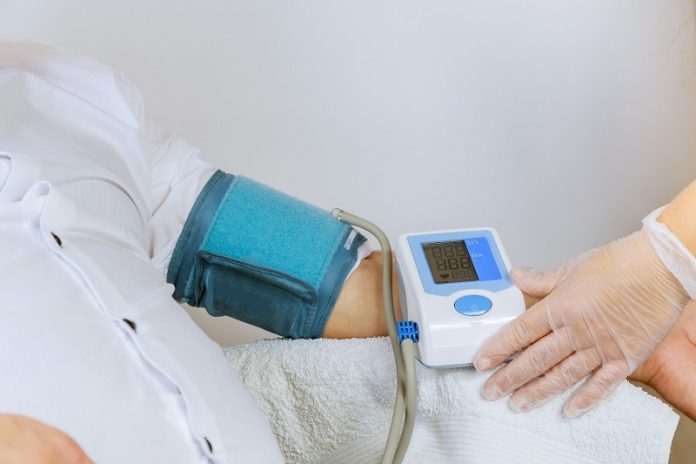
High blood pressure, also known as hypertension, is a common health issue that affects millions of people worldwide.
Despite its prevalence, many myths surround this condition, leading to misunderstandings and potentially harmful practices.
Clearing up these myths with accurate information can help people manage their blood pressure better and lead healthier lives.
One common myth is that high blood pressure always causes noticeable symptoms. Many people believe that if they feel fine, their blood pressure must be normal.
However, high blood pressure is often called the “silent killer” because it typically has no symptoms until it causes serious health problems like heart attacks or strokes.
Research shows that many people with high blood pressure are unaware they have it, highlighting the importance of regular blood pressure checks.
Another myth is that high blood pressure is only a concern for older adults. While it’s true that the risk of hypertension increases with age, young people can also have high blood pressure.
Factors like obesity, poor diet, lack of exercise, and genetic predisposition can cause high blood pressure in younger individuals. Studies have found that early detection and lifestyle changes can help manage blood pressure effectively, regardless of age.
Some people believe that if high blood pressure runs in their family, there’s nothing they can do to prevent it. While genetics do play a role in hypertension, lifestyle choices are crucial in managing blood pressure.
Research indicates that maintaining a healthy weight, eating a balanced diet low in salt, exercising regularly, and avoiding smoking and excessive alcohol can significantly reduce the risk of developing high blood pressure, even for those with a family history.
A widely held myth is that stress is the main cause of high blood pressure. While stress can temporarily raise blood pressure, it is not usually a direct cause of chronic hypertension. The real issue is how people respond to stress.
Unhealthy coping mechanisms like overeating, smoking, and drinking alcohol can contribute to high blood pressure. Research suggests that managing stress through healthy practices like exercise, meditation, and adequate sleep can help keep blood pressure in check.
Many people think that as long as they are taking medication for high blood pressure, they don’t need to worry about their lifestyle. While medications are crucial for controlling high blood pressure, they are most effective when combined with healthy lifestyle changes.
Studies have shown that diet, exercise, and weight management can enhance the effectiveness of blood pressure medications and may even reduce the need for higher doses.
Another myth is that people with high blood pressure should avoid all physical activity. On the contrary, regular physical activity is one of the best ways to lower blood pressure. Exercise helps the heart use oxygen more efficiently, reducing the workload on the heart and arteries.
The American Heart Association recommends at least 150 minutes of moderate-intensity exercise per week for adults. Research has consistently shown that regular exercise can help lower blood pressure and improve overall heart health.
Some believe that once their blood pressure is under control, they can stop taking their medication. This is a dangerous misconception. High blood pressure is a chronic condition that requires ongoing management.
Stopping medication without a doctor’s guidance can lead to a sudden spike in blood pressure, increasing the risk of heart attack or stroke. Research underscores the importance of adhering to prescribed treatment plans and regularly consulting with healthcare providers.
There is also a myth that high blood pressure isn’t a serious health problem unless it’s extremely high. Even moderately elevated blood pressure can damage the heart, kidneys, and other organs over time.
The risk of complications increases progressively with higher blood pressure levels. Studies have shown that managing blood pressure within the recommended range can significantly reduce the risk of serious health issues.
Lastly, some people think that reducing salt intake is the only dietary change needed to manage high blood pressure. While reducing salt is important, other dietary factors also play a role.
The DASH (Dietary Approaches to Stop Hypertension) diet, which emphasizes fruits, vegetables, whole grains, and lean proteins while reducing sugar and saturated fats, has been proven to lower blood pressure.
Research supports the DASH diet as an effective strategy for managing high blood pressure and improving overall health.
In conclusion, understanding the facts about high blood pressure is essential for effective management and prevention. Regular monitoring, healthy lifestyle choices, adherence to medication, and ongoing consultation with healthcare providers are key to controlling high blood pressure.
By debunking these common myths, individuals can take proactive steps to maintain their health and reduce the risk of serious complications.
If you care about high blood pressure, please read studies about what to eat and to avoid for high blood pressure, and 12 foods that lower blood pressure.
For more health information, please see recent studies about the connection between potato and high blood pressure, and how to eat your way to healthy blood pressure.
Copyright © 2024 Knowridge Science Report. All rights reserved.



